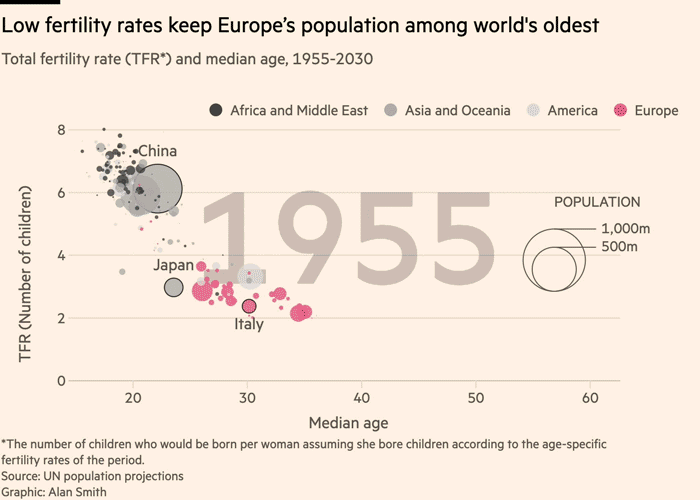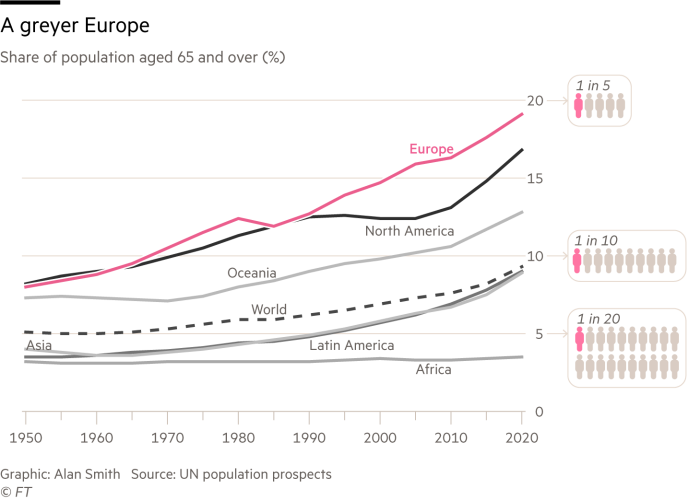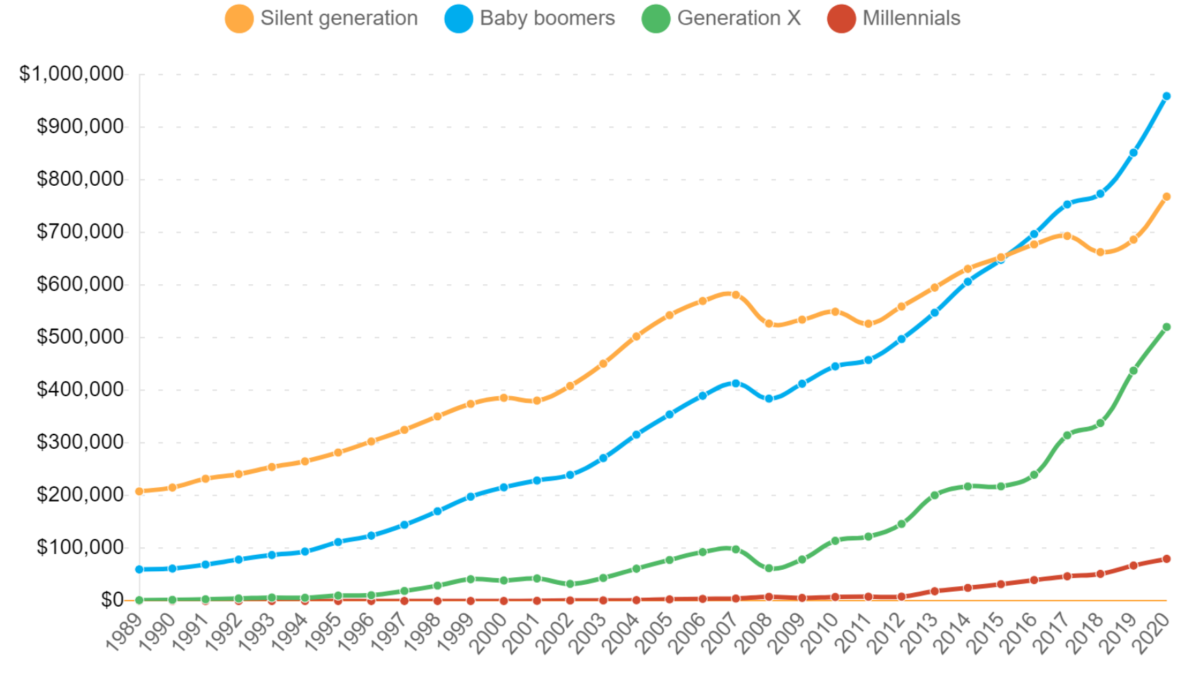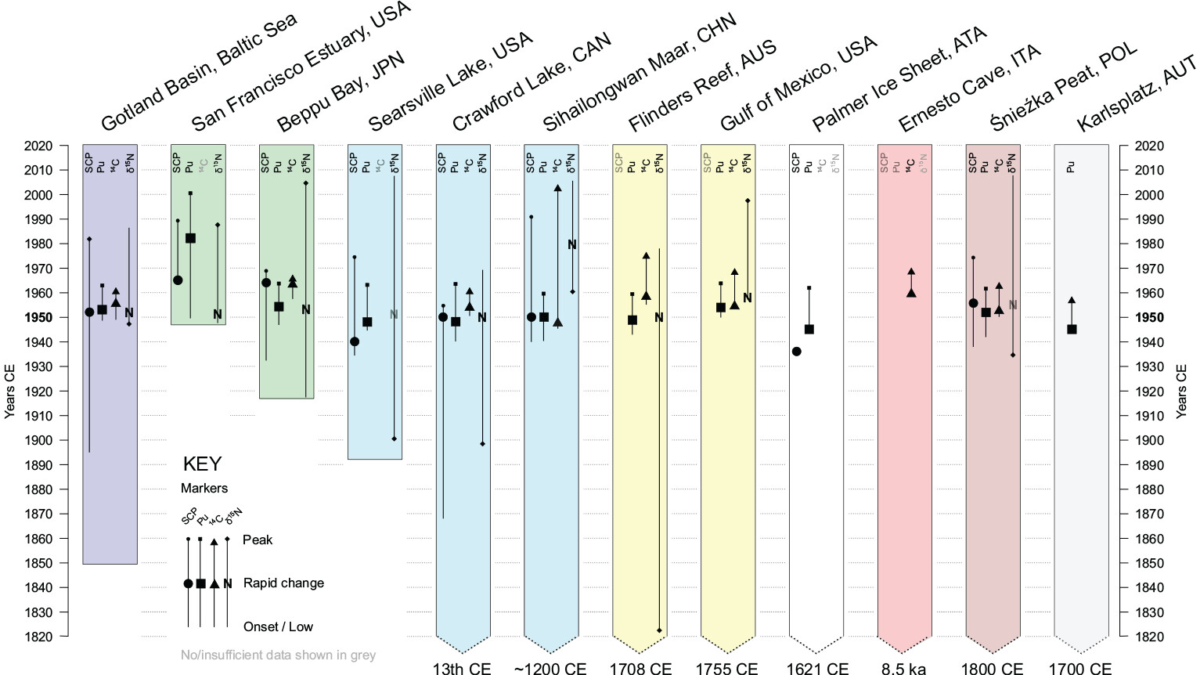Europe’s demographic time-bomb – While global population is ageing, continent presents extreme example of this trend

By Valentina Romei
13 January 2020
LONDON (Financial Times) – With its low birth rate and fast-ageing population, Europe is facing a demographic crisis, one that economists fear could hit growth and public finances.
While the global population overall is getting older, Europe is an extreme example of this trend, particularly in the continent’s south and east, which have been hit by record-low fertility rates and emigration. An analysis of the main demographic trends highlights the challenge faced by policymakers.
World’s oldest continent
Europe has had higher longevity and lower fertility rates than the rest of the world over the past few decades. It is now the region with the world’s oldest population. The median age in Europe is 43, 12 years older than the rest of the world.
The trend will become more pronounced from 2021 when Europe’s population is forecast by the UN to start shrinking.

The number of people of working age, those aged between 20 and 64 years old, peaked in Europe in 2010. By 2020, there were nearly 12m fewer in this group than a decade earlier, a 2.6 per cent fall. By 2035, there will be about 50m fewer people of working age in Europe than in 2010.
Emerging economies such as China and South Korea are also ageing rapidly — their median age has risen to more than 40 this year, doubling that in 1970 — and Japan has the largest proportion of people aged 65 and over in the world.
And it costs a lot too
There is serious concern about the impact of an ageing population on public finances and economic growth.
Philipp Engler, an economist at the IMF, forecasts that gross domestic product per capita in advanced economies will shrink as a result. The reductions are expected to be “substantial in the EU economies”.
Martina Lizarazo López, demographics expert at Bertelsmann Stiftung, a Brussels-based think-tank, calculated that by 2050, demographic change would damp average per capita income in France, Spain, Italy and Germany by €4,759-€6,548 at 2010 prices. The European Commission forecasts that spending on healthcare for older people and pensions, which already accounts for 25 per cent of GDP in the EU, will rise 2.3 percentage points by 2040.
By 2035, about one in four people is set to be aged 65 or over in Europe, up from one in 13 in 1950. [more]



While this may alarm economist, I should say conventional economist, this is a trend that will have to happen because the world’s resources are finite. The folks living in Europe are well aware, maybe intuitively, that having more children is not the answer in a constrained world. Their only real hope is to reduce population thereby making it possible for future generations to actually survive. To continue expanding population is a death wish. .The world can not support 7.5 billion people and they know it. Our system of economics has to shift to something sustainable, stable state or a declining state. It is a horrible situation but it will be much worse in countries that are deep into over-shoot. We can not let economist make decisions but rather scientist and ecologist. Frankly, in the end, nature will likely make the choice and it will not be pretty. Are we a plague species?